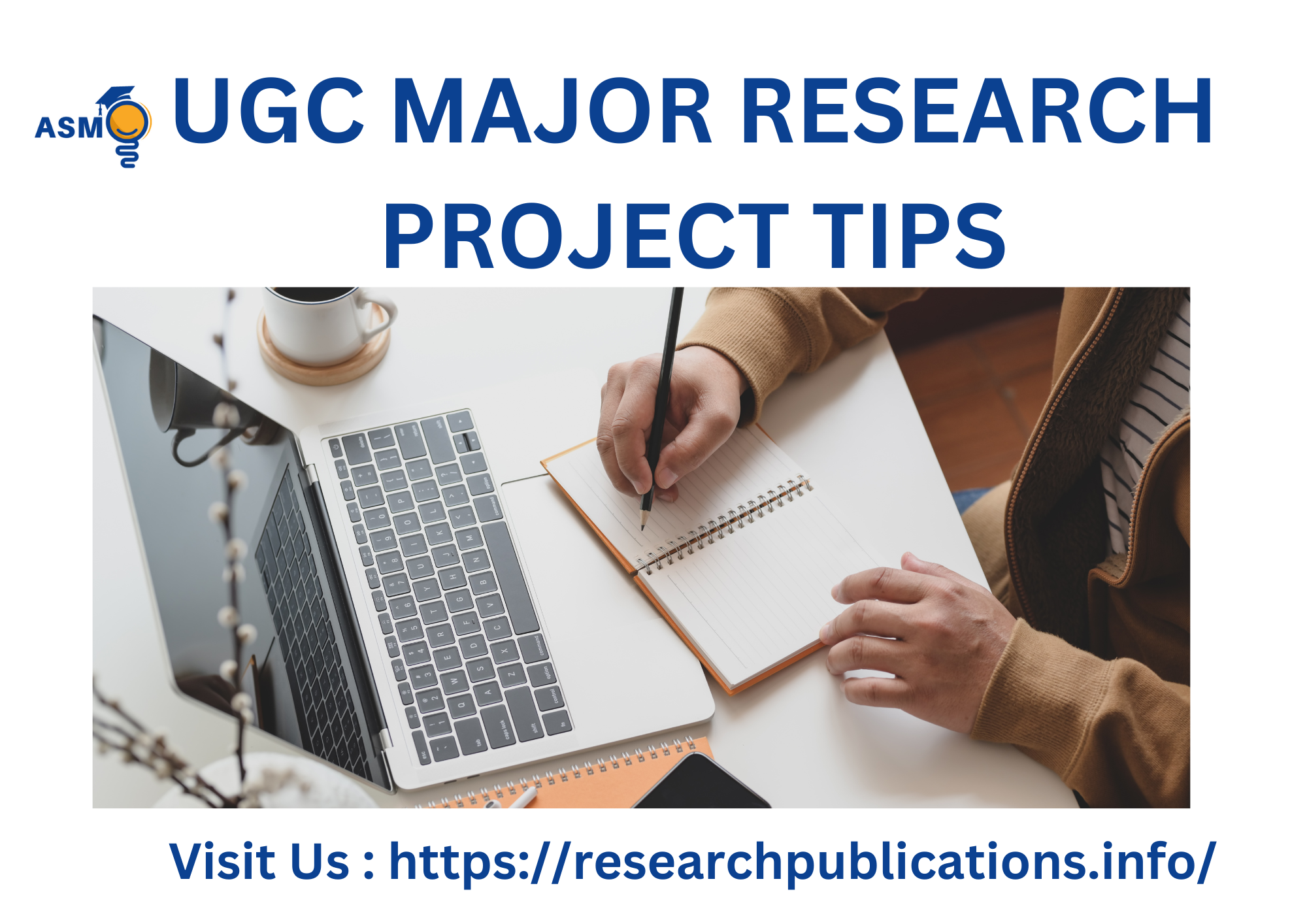To apply for a UGC Major Research Project, you must meet the following eligibility criteria:
- You must be a regular teacher at a UGC-recognized university or college.
- You must have a Ph.D. degree in the relevant discipline.
- You must have at least 3 years of teaching experience after obtaining your Ph.D. degree.
- You must have published at least 5 research papers in peer-reviewed journals in the last 5 years.
If you meet all of the above criteria, you can apply for a UGC Major Research Project by following these steps:
- Download the UGC Major Research Project application form from the UGC website.
- Fill out the application form completely and provide all of the required information.
- Attach the following documents to your application form:
- A copy of your Ph.D. degree certificate.
- A copy of your teaching experience certificate.
- A list of your publications in peer-reviewed journals.
- A detailed research proposal.
- Submit your completed application form and all supporting documents to your university or college.
- Your university or college will forward your application to the UGC for review.
The UGC will select Major Research Projects based on the following criteria:
- The quality of the research proposal.
- The applicant’s research track record.
- The relevance of the research to the UGC’s priorities.
If your Major Research Project is selected, you will receive a grant from the UGC to support your research. The grant amount will depend on the nature of your project and the budget allocated by the UGC.
Here are some additional tips for writing a successful UGC Major Research Project proposal:
- Clearly define the research problem that you are trying to solve.
- State your research objectives and hypotheses.
- Describe your research methodology in detail.
- Explain the significance of your research and its potential impact.
- Be realistic about your project budget and timeline.
- Write in a clear and concise style.
- Proofread your proposal carefully before submitting it.
1. Understand the UGC Guidelines Thoroughly
- Why: Each funding call has specific criteria for eligibility, objectives, and submission.
- How: Read the guidelines available on the official UGC website. Pay attention to:
- Project duration
- Funding limits
- Evaluation metrics
- Pro Tip: Cross-check the requirements with your project’s scope and ensure compliance.
2. Identify a Strong Research Topic
- Why: The relevance and originality of your topic significantly impact its acceptance.
- How:
- Choose a topic that addresses societal challenges, aligns with national priorities, or contributes to academic advancement.
- Ensure it aligns with the focus areas outlined in the UGC notification.
- Example: A study on “AI in Rural Education” aligns with India’s digital education goals.
3. Build a Comprehensive Research Proposal
- Why: Your proposal is the primary document that reviewers assess.
- How: Include these critical sections:
- Title and abstract
- Statement of the problem
- Objectives and methodology
- Expected outcomes and impact
- Budget estimation and justification
- Pro Tip: Use clear, concise language and back your claims with preliminary data or literature reviews.
4. Highlight Feasibility and Impact
- Why: UGC looks for projects that are practical and offer measurable outcomes.
- How:
- Present a realistic timeline and resource allocation.
- Show how your research benefits academia, industry, or society.
- Pro Tip: Include a well-structured Gantt chart or timeline in your proposal.
5. Collaborate with Experts
- Why: Strong partnerships can add credibility to your project.
- How:
- Partner with researchers, institutions, or industry experts relevant to your field.
- Clearly define each collaborator’s role in the project.
- Pro Tip: Highlight their expertise in the proposal to strengthen your case.
6. Secure Preliminary Data
- Why: Data supports your hypothesis and demonstrates your preparedness.
- How:
- Conduct pilot studies or literature reviews to establish the foundation of your research.
- Cite credible sources to validate your claims.
- Pro Tip: Include visual aids like graphs or tables to present data effectively.
7. Prepare a Realistic Budget
- Why: Overestimated or underestimated budgets can lead to rejection.
- How:
- Divide your budget into clear heads: salaries, equipment, fieldwork, and contingencies.
- Justify each expense, ensuring it aligns with UGC’s funding limits.
- Pro Tip: Use standard formats provided by UGC for transparency.
8. Strengthen Your Academic Credentials
- Why: Your track record influences the decision-makers.
- How:
- Highlight previous research projects, publications, or awards in your CV.
- Provide evidence of past successful collaborations or research outcomes.
- Pro Tip: Include recommendation letters if permitted.
9. Follow Ethical and Legal Standards
Why: Ethical considerations are mandatory for approval.
- How:
- Obtain Institutional Ethics Committee (IEC) approval, if required.
- Address issues like data privacy, consent, and plagiarism.
- Pro Tip: Use plagiarism detection tools to ensure originality.
10. Submit Before the Deadline
- Why: Late submissions are often disqualified.
- How:
- Set internal deadlines to complete the application early.
- Double-check your proposal and required documents for accuracy.
- Pro Tip: Use UGC’s online portal for submission and keep a backup copy of all files.
Bonus Tips
- Engage with Mentors: Seek advice from senior researchers with experience in UGC projects.
- Attend Workshops: Many universities conduct training sessions on writing UGC proposals.
- Monitor Updates: Regularly check the UGC website for announcements and clarifications.
Conclusion: Achieving Success in UGC Major Research Projects
Securing a UGC Major Research Project requires careful planning, thorough documentation, and innovative ideas. By following these tips and staying committed, you can increase your chances of approval and contribute meaningfully to your field of study.
If any help kindly contact Us: +91 9822 3710 39



I am, Abhinav,
Dear ASM, your work is very innovative, kindly update me new changes in higher education.
Thank you
Use academic update in higher education.
Thank you ASM